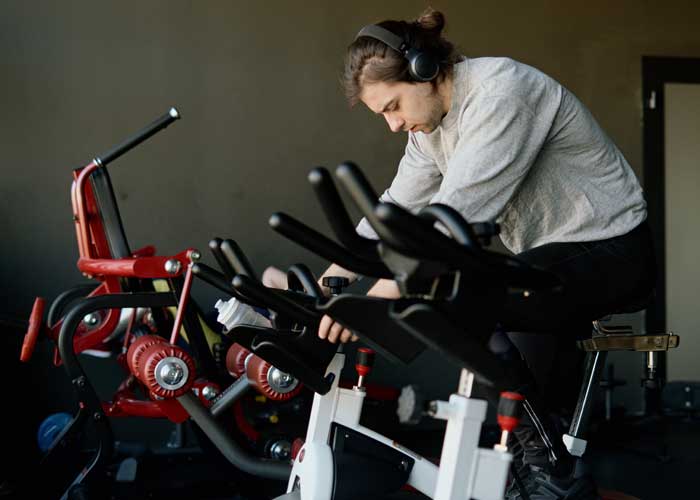Helpful tips for resuming exercise after a long period of rest.
As parks and gyms begin to re-open, you might be ready to get back to your normal exercise routine. Long periods of rest can increase your risk for injury when trying to resume your previous exercise routine. Because of this, we have provided you with some helpful tips for getting back into shape while avoiding injuries.

Ease into it.
One thing you might notice as you get back to working out is that your endurance or strength isn’t what it used to be. This is completely normal for those who have experienced periods of rest. As you begin to re-introduce yourself to a normal routine, start small and work your way back to where you left off before quarantine. You can do this by reducing the intensity of your workouts and not overestimating your strength.
Listen to your body.
By knowing your body’s limitations you can avoid fitness injuries—and it’s important to allow adequate time for your muscles to rest and heal properly. It’s okay to work out every day, but there is a difference between being sore and being in pain. If the discomfort continues an hour or more after working out, you have taken it too far. Make sure to listen to your body and give yourself a break for one or two days if pain does occur; this will help to speed up recovery time and prevent worsening the injury.
Warm up and cool down.
Warming up and cooling down are important factors of a successful and injury-free workout. Doing a light jog, briskly walking or stretching for 5-10 minutes will help to prepare your body for the workout to come, increases flexibility and reduces stress on your heart. Cooling down by walking or stretching for 5-10 minutes after a workout can help to reduce soreness and allows for a gradual decrease in your heart rate in order to avoid passing out or feeling sick.
Eat nutritiously dense meals.
A healthy diet of high-quality proteins, fats, and carbohydrates can help fuel your workouts and aid in recovery and healing. Increasing protein intake won’t necessarily prevent an injury, but it can help repair muscle tissue and reduce the breakdown of muscle with the help of carbohydrates. Healthy fats that contain Omega-3 fatty acids help to reduce inflammation, thus aiding in recovery and injury prevention—and as always, don’t forget to stay hydrated. Being dehydrated is a cause of muscle fatigue, which in turn, heightens the risk of injury.
Get plenty of sleep
Sleep and exercise go hand-in-hand. Exercise can help you fall asleep faster, longer and deeper; and a deeper sleep promotes muscle growth and repair, bone building and fat burning.
All-in-all it’s important to go easy on yourself and not rush the process. The body has an amazing memory, and depending on your exercise habits in the past, you could be back to your old self in no time.





